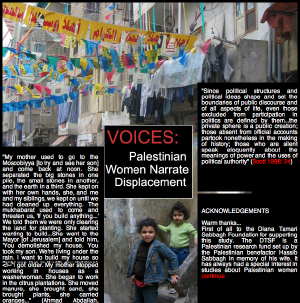In case you’re wondering why this blog sometimes has not been updated for several days: One reason might be my job as a webjournalist for the research program Cultural Complexity in the New Norway (CULCOM).
Now, several of my interviews and summaries have been translated into English:
– Modernity means acceleration
Why do we all have so little time, even though we can actually work more effectively than we could previously? The reason is that acceleration- the continuous increase in speed- is the basic principle of our time. “Modernity’s entire history can be written as a history of acceleration,” says Hartmut Rosa. At the CULCOM seminar “Time and Modernity” the sociologist presented a new theory of modernity.
– This is the basis for a global ethic
They do not know one another and cannot speak to each other. Nevertheless, the old woman in the Moroccan village offers to help the dying woman from the United States. “In order to find common human values, we must go to the basic conditions for our existence – love and mortality”, said the philosopher Odin Lysaker, at the seminar “Shared values in a community with a multiplicity of values”.
Learning from People’s Struggle for Recognition
“The youth attack because society has violated them, and therefore they fight for ‘recognition’,” wrote the philosopher Odin Lysaker in a feature article on the youth protests in Copenhagen. Is it possible for us to understand conflicts better by reflecting over the fact that all people seek recognition?
Invisible Norwegianness
What representations of “Norwegianess” and “normality” are imparted when teachers teach about gender and sexuality in a multicultural classroom? While most studies about “the New Norway” focuses on minorities, Åse Røthing directs her focus at both the majority and the minority, the “Norwegian” and the “non-Norwegian.”
Exclusion Instead of Help
German politicians claim that they want to “save immigrant women.” But for researcher Urmila Goel, the bills proposing to combat arranged marriage are racist and exclusionary. In a new research project, Goel is going to look at how racist and heteronormative discourses work together and reinforce each other in the German debate on arranged marriage.
Moving toward a Cultureless Islam
An extravagant Pakistani wedding or a moderate Muslim celebration? What is Muslim and what is Pakistani? – It wasn’t long before I began to understand that that which permeates all of their discussions about identity is the search for an Islamic identity. They are very concerned with separating culture and religion, says Liv Bjørnhaug Johansen, who recently submitted her Master’s thesis on identity-work on a Norwegian-Pakistani webpage”)
Getting under the surface of the Koran school movement
Both researchers and Turkish authorities view them as fundamentalists. But actually they engage in totally normal religious activities. “It is important to render innocuous that which is harmless”, says the anthropologist Johannes Elgvin, who in his Master’s thesis takes issue with previous research on the Koran school movement.
Religion – an anchoring point for the nation?
Why are there so many debates on religion these days? – Religion is presented as making up part of an alleged core of both the self and the nation, says Lars Laird Eriksen. The sociologist is researching the role of religion in the construction of national identity in the Norwegian school.
Is Networking More Important than Education?
Immigrant women do not leave the workforce at a higher rate than Norwegian women when they have children. The younger generation is doing better than their parents” generation. But education is not as important for obtaining a permanent job as is commonly believed. In her Master”s thesis, sociologist Ida Drange gives us new insight into immigrant women on the job market.
We are all multicultural
Why do intelligent people have prejudices against lesbians and people from distant regions? Where does tolerance end for other ways of living?- I am interested in the boundaries of multiculturalism, said anthropologist Aleksandar Boskovic at one of CULCOM’s Monday seminars.
– More of a Street Culture than an Honor-based Culture
The African male youth along the Aker river in Oslo who sell hashish to researchers, designers and students are passing on an old tradition in the area. “To speak of an honor and feudal culture in connection with the violence along the river is misguided,” says sociologist Sveinung Sandberg. Together with sociology professor Willy Pedersen, this research fellow has studied Norway’s largest outdoor hash market.
From an ethnic to a civic identity?
In 1990, Lithuania was the first Baltic State to declare its independence from the Soviet Union. The Lithuanian anthropologist Vytis Ciubrinskas spoke at CULCOM’s Monday Seminar of a country where national identity has become less ethnic.


